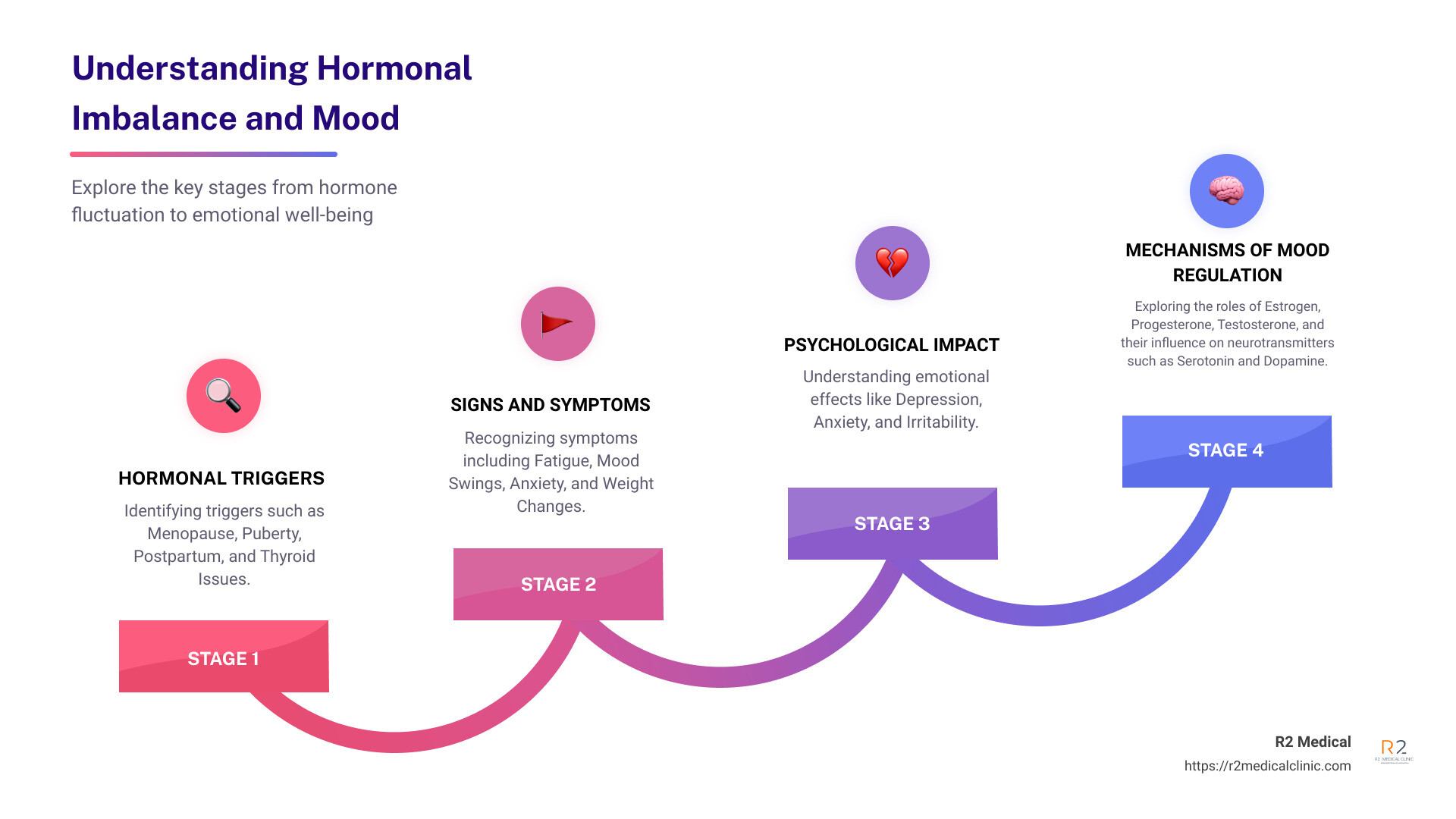
You describe your symptoms. Fatigue. Bloating. Mood swings. You go to the doctor—but nothing adds up the way it feels in your body. They run tests. Everything’s “normal.” But you know something has changed.
You start questioning yourself. Maybe it’s stress. Maybe it’s aging. But something real is shifting—and no one’s naming it.
Hormonal symptoms often wear the clothes of other conditions. And they walk quietly into misdiagnosis.
It feels like depression, but your hormones say otherwise
You lose interest in things. You sleep more. Or less. It feels like depression, but your hormones say otherwise. Estrogen’s fallen. Thyroid’s slowing. Cortisol’s climbing.
The sadness isn’t always emotional. Sometimes it’s chemical. And SSRIs won’t fix a cycle that’s collapsed under imbalance.
You’re not ungrateful. You’re unregulated.
You’re told it’s anxiety—but it started in your gut
Your heart races. You sweat. You feel overwhelmed. You’re told it’s anxiety—but it started in your gut. Insulin crashes. Cortisol spikes. Progesterone disappears.
You’re not imagining it. You’re interpreting a chemical alert as fear. Because your body doesn’t speak in words—it speaks in sensation.
And panic becomes the language of imbalance.
You treat your skin—but the cause is hormonal
Acne appears. Or worsens. You change products. You treat your skin—but the cause is hormonal. Androgens rise. Estrogen drops. Blood sugar swings.
It’s not poor hygiene. It’s overproduction of oil. Slowed cell turnover. Trapped inflammation.
Topical care won’t clear what your ovaries or adrenals are still repeating.
You chase weight loss—but your thyroid is the one slowing down
You change your diet. You move more. Still, the scale doesn’t budge. You chase weight loss—but your thyroid is the one slowing down. TSH rises. T3 lags.
Calories aren’t the issue. Conversion is. And your metabolism isn’t lazy—it’s listening to a gland that’s confused.
You’re not doing it wrong. You’re just missing the missing piece.
Your periods change—and no one checks your hormones
They become heavier. Or disappear. Or show up twice. Your periods change—and no one checks your hormones. You’re told it’s “normal variation.” But estrogen may be spiking. Or progesterone may be silent.
Cycle irregularity is one of the first things hormones whisper through. And ignoring it lets the imbalance settle.
Patterns don’t lie—especially when they repeat monthly.
You get diagnosed with IBS—but the root is hormonal
You bloat. You cramp. You alternate between constipation and urgency. You get diagnosed with IBS—but the root is hormonal. Estrogen rises. Progesterone slows digestion. Cortisol disrupts gut bacteria.
Your symptoms flare with your cycle. Or with stress. But no one maps your gut to your glands.
And the more you treat the wrong system, the worse your digestion feels.
You feel weak, but the labs say you’re fine
You drag through the day. Your muscles feel heavy. You feel weak, but the labs say you’re fine. Testosterone may be low. Cortisol may be gone. DHEA may be forgotten.
Energy isn’t always measured in iron or B12. Sometimes it’s carried by invisible hormones slipping through your daily rhythm.
Strength is chemical, too.
You forget words, and it’s not just age
You search for names. Sentences fall apart. You forget words, and it’s not just age. Estrogen supports memory. Thyroid supports clarity. Cortisol interrupts both.
This isn’t cognitive decline. It’s hormonal static.
Before you fear dementia, check if your chemistry is still translating your thoughts into language.
No one checks hormones until everything else is ruled out
You’ve seen specialists. You’ve had tests. Still no answers. No one checks hormones until everything else is ruled out. But by then, the symptoms have changed. Grown. Nested.
Early hormone testing saves years of confusion. Not because it always reveals disease—but because it reveals rhythm.
And health starts where rhythm returns.
